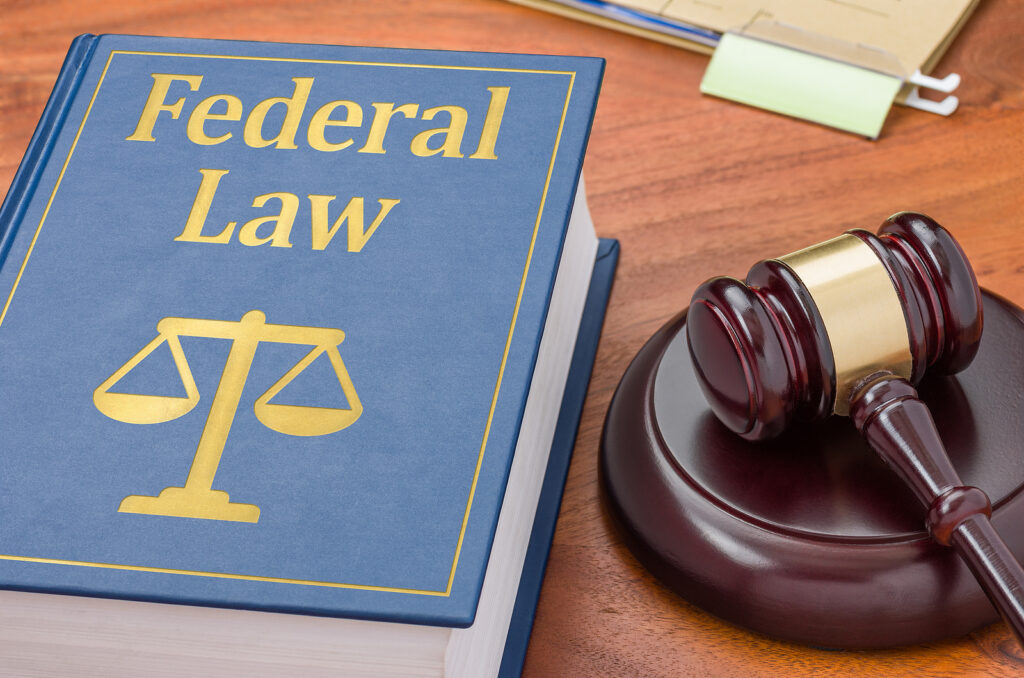State and Federal Crimes: What’s the Difference Between Them
If you have been charged with committing a criminal offense, the prosecution of your case may occur in federal or state court. You can even be prosecuted in both state and federal court for essentially the same conduct. For anyone unfamiliar with the legal system in the United States, this can be confusing. It helps to gain a better understanding of the key difference between state and federal crimes and how they are prosecuted.

Understanding the United States Judicial System
The United States operates under what is referred to as a “federalist” system of governance. Federalism involves shared power between a strong central government (federal government) and smaller regional governments (state governments). Under this form of government, both the federal government and the individual state governments have the authority to pass and enforce laws. In the U.S., states can pass laws that provide more protection to defendants in a criminal case than that afforded to them under the U.S. Constitution; however, they cannot pass a law that interferes with or violates the rights enumerated in the Constitution.
Because we operate under a federalist form of government, we have both federal and state (or local) law enforcement agencies, and we have a federal judicial system as well as individual state judicial systems. As such, criminal conduct may be illegal under federal law or state law and may be investigated and prosecuted by the federal or state government.
When Does the Federal Government Have Jurisdiction Over a Crime?
It may sound confusing to know that both the federal and state governments can prosecute criminal offenses; however, for the federal government to prosecute a crime it must have jurisdiction, meaning the authority to make legal decisions and judgments. The federal government only has jurisdiction if the crime fits into one of the following categories:
- The defendant crossed state lines during the commission of the crime. For example, kidnapping becomes a federal crime if the kidnapper crosses a state line.
- Criminal conduct crosses state lines. Drug trafficking and bank robbery are considered federal crimes under the theory that drugs and money almost always cross state lines at some point.
- The conduct involves fraud, deception, or misrepresentation of or to the federal government. In other words, the federal government is the “victim” of a crime such as tax evasion or Medicare fraud.
- Immigration and customs violations. Because the federal government has exclusive jurisdiction over the country’s borders, crimes such as unlawful entry into the U.S. and sex trafficking are considered federal crimes.
- The conduct occurred on federal land or involved federal officers. Assaulting a federal law enforcement officer or committing any crime in a federal park are examples of this category of federal jurisdiction.
How Can Both the State and Federal Government Prosecute the Same Crime?
Although it does not happen frequently, it is possible to be prosecuted in both state and federal court for the same criminal conduct. This is possible because states are considered “separate sovereigns” and, under the “dual sovereignty” doctrine, both governments have the right to prosecute a defendant for the same conduct if it is illegal under both state and federal law and the federal government has the right to assert jurisdiction. Drug trafficking, for example, can be prosecuted in both state and federal courts.
Are the Penalties Different for State and Federal Crimes?
The penalties you face if convicted of a crime are determined by the applicable law making the conduct illegal. Generally, federal maximum sentences are harsher than state penalties. By way of illustration, a first-time conviction for trafficking up to 400 grams of fentanyl in Nevada state court carries a potential sentence of two to 20 years, while the same conviction in federal court carries a sentence of five to 40 years.
What Should I Do If I Was Charged with a Crime in Las Vegas?
If you have been charged with a state or federal criminal offense or are the target of a criminal investigation in Las Vegas, consult with the experienced criminal defense attorneys at The Vegas Lawyers as soon as possible to discuss your next steps. Call us at 702-707-3000 or contact us online.

